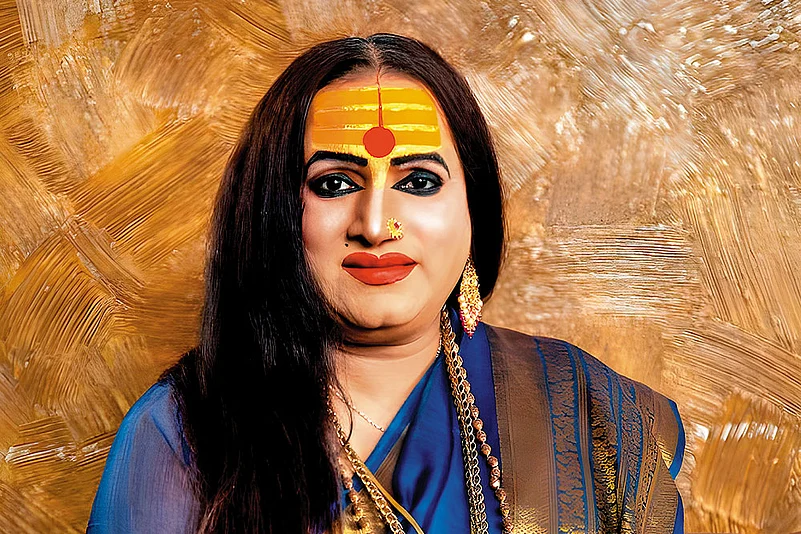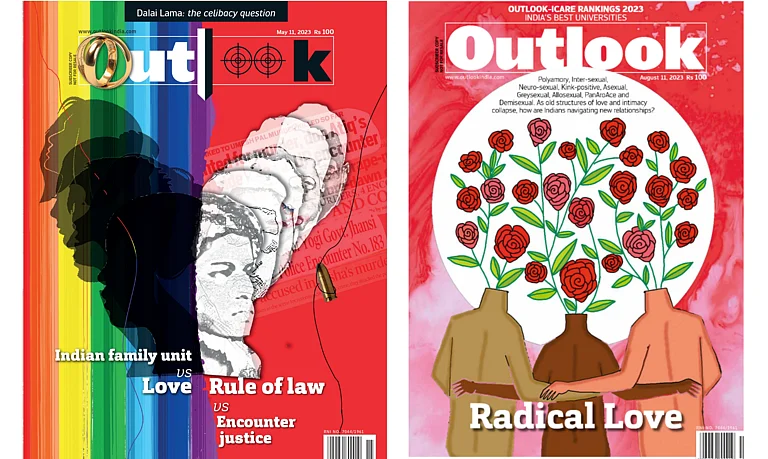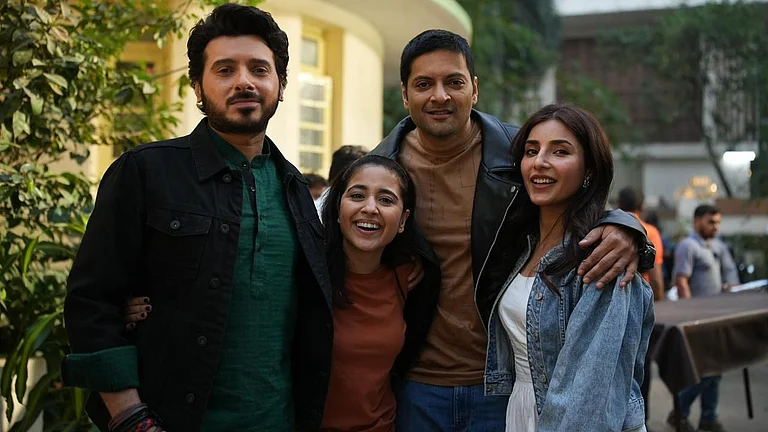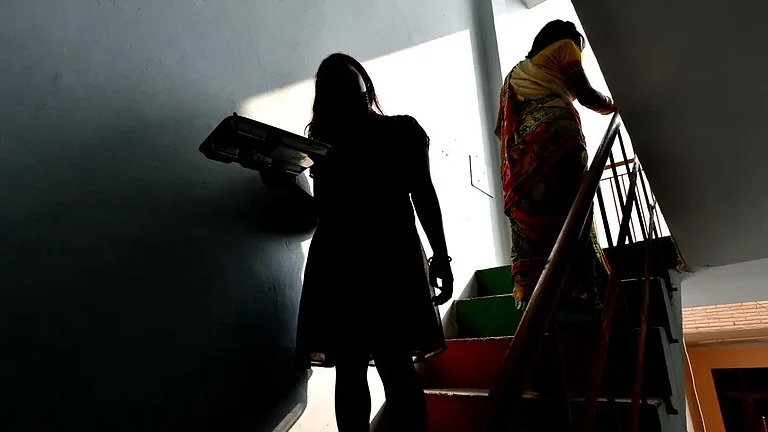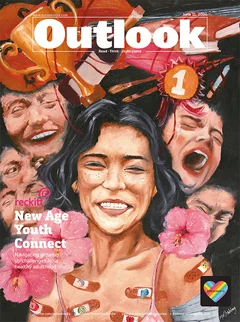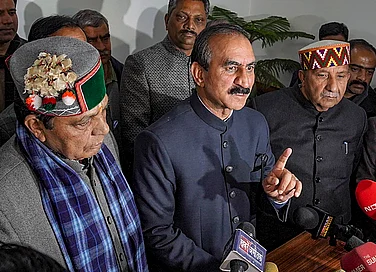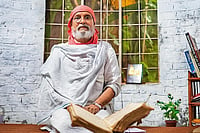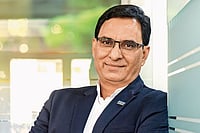Laxmi Narayan Tripathi is a trailblazing transgender activist who has been instrumental in securing legal rights and changing perceptions of the transgender community.
She was the principal petitioner in the landmark NALSA case of 2014 before the Supreme Court for the recognition of transgender individuals as a distinct gender identity – the ‘third gender’ – and their entitlement to the fundamental rights guaranteed by the Indian Constitution.
Tripathi is a multi-faceted individual. She is a Bharatanatyam dancer and choreographer, motivational speaker, and has even dabbled in Bollywood films and reality shows. Notably, she also served as the Mahamandaleshwar of the Kinnar Akhada, a position of leadership within the community.
Her autobiography, titled Main Hijra, Main Laxmi, offers a personal perspective on her experiences and struggles. Tripathi’s ongoing fight for LGBTQIA+ rights is a testament to her unwavering dedication to equality and social justice. Edited excerpts from an interview with Naina Gautam:
How has the public attitude towards the LGBTQIA+ community changed during your lifetime?
There is now greater acceptance and understanding of the community, leading to less stigma and discrimination. In the past, there was no recognition of the community. Then, the Supreme Court gave its landmark NALSA judgement, followed by its ruling on the transgender issue. Later, Section 377 was read down. Now, even the civil union and equal marriage issues have been dealt with by the apex court.
What about transgender people?
The Parliament passed the Transgender Act, 2019 and the Ministry of Social Justice and Empowerment oversees transgender affairs and launched the Smile Project.
The Ministry of Social Justice has developed policies that have had a significant impact on the transgender community. Transmen, transwomen, kinnar, and hijras are now more visibly recognised as sexual minorities, and their lives have drastically changed for the better. Empowerment is the most significant change, and it is vital for their well-being.
What can we learn about diversity and inclusivity from ancient texts and mythology?
In the Mahabharata, we encounter characters like Shikhandi, a transgender who was accepted and empowered to become a warrior. Shikhandi, a transgender character, was accepted by all the nobles and even Lord Krishna himself. The community as a whole is treated with dignity, and there is much less stigma attached to them.
For transgender individuals, there are no strict binaries. Transmen can marry transwomen or biological women, and transwomen can marry men or transmen
What impact does the mainstream media have on public perception of the LGBTQIA+ community?
The mainstream media has generally portrayed the community in a negative light, stereotyping it derogatorily. With the emergence of the OTT platform, a more sensitive and authentic representation of the community has become possible. The OTT platform has released community documentaries that provide a more accurate portrayal of the community. This is a significant change compared to the past when such representation was limited. Documentaries such as Taali and Made in Heaven have included characters from the transgender community, providing important opportunities for representation.
How does the Indian situation compare with the global scenario?
I believe that India is in a relatively better place because our courts accommodate different perspectives. They have made favourable rulings, and the judges seem to have a better understanding of things. There is a new sense of progress. Major political parties are now considering LGBTQIA+ issues, which is a significant change from 10 years ago.
India has taken significant steps to address the issues faced by the transgender community. The government has established shelter homes called Garima Grahas and implemented policies to support transgender individuals. Moreover, multinational companies in India are hiring transgender people.
As compared to other parts of the world, transgender people in India feel relatively safe from bullying and discrimination. However, it is unfortunate that hate crimes against transgender individuals are still prevalent in the Western world, especially in the US and Brazil.
People must be accepted as they are. Institutions must implement strong policies against bullying, which forces children to drop out of school
What are the healthcare challenges faced by LGBTQIA+ individuals?
Numerous healthcare issues exist, including those related to the transgender community. Fortunately, AIIMS has taken a significant step forward by establishing a complete Centre of Excellence dedicated to this cause.
However, there is still a pressing need for advocacy and education within the medical fraternity when it comes to issues affecting the LGBTQIA+ community. It is crucial to address how to reduce stigma and discrimination in this field.
Over the last five to 10 years, we have observed a significant improvement in the quality of health services provided to trans people. In the past, medical professionals often refused to perform even basic check-ups on trans individuals. However, this has changed over time, and now, more trans people are able to access quality healthcare services.
It was very difficult for doctors to know how to deal with transgender cases, especially when it came to admitting them. Hospitals, especially in the government sector, have different wards for males and females so they would be confused about where to accommodate them. Some patients have died simply because of this indecision on the part of doctors.
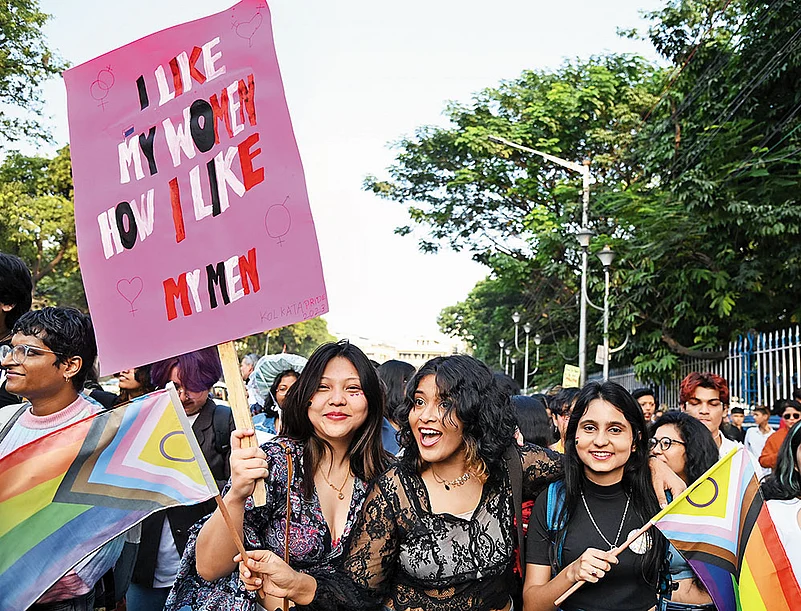
How has the decriminalisation impacted the individuals in India?
The decriminalisation of homosexuality has provided a significant boost to the LGBTQIA+ community, resulting in various supportive actions. When ruling on same-sex marriages, the Supreme Court stated that Parliament would take the final call. However, for transgender individuals, there are no strict binaries in place. Transmen are allowed to marry transwomen or biological women, while transwomen can marry men or transmen.
How helpful have been recent developments?
The NALSA judgement and the decriminalisation of Section 377 empowered us. It gave us a court-certified document that had the government’s approval. This gave us validity and proof that we were not doing something wrong.
Eventually, it boosts their confidence that they need not hide their identity—they can present themselves as they are. Earlier, people were afraid because it could land them in jail with a life sentence. Now, they have these documents to show.
I have noticed that many parents have begun accepting their children’s choices because they have some sort of supporting document. In India, society’s perception of you matters a lot, and these documents serve as a form of support which you can use to explain your choices.
After the judgement, the lives of many people changed. Even MNCs started hiring them, so now they can also think of getting a dignified job. I believe in a few years we will have more rights and benefits from the government.
Globally, there are hate crimes, but that is not so much of a problem here. India is much better than the West or any other part of the world in this regard
What further reforms are needed to achieve equality?
I believe there should be a non-discriminative policy where people are accepted as they are. That is a big necessity. Schools must implement strong policies against bullying, which forces children to drop out of education. Children thrown out of their homes must be given safe shelter. Skill development needs to be massively scaled up to ensure transgender people are able to secure dignified jobs. When people open their doors to them as employees, it will expose them to an all-new dignifying experience, shore up their self-esteem and help them learn and grow. Right now, bereft of skills and opportunities, they are forced into sex work and begging.
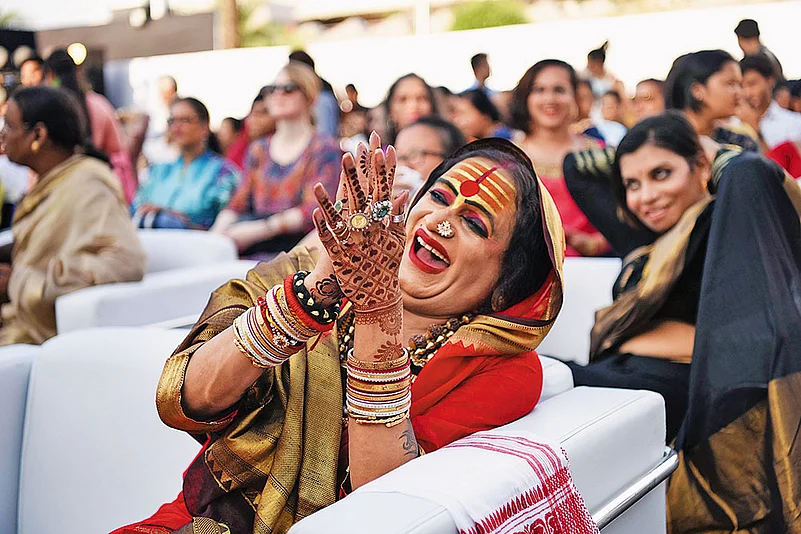
How can the interest of younger people be protected in this digital age of misinformation, disinformation and malinformation?
Today young children have countless avenues open, and the phone is the new gateway to everything. People looking for any information reach for their phones. That needs to be modified: they should be more responsible and reach out instead to the right NGOs, counsellors, and doctors.
What are the challenges still faced by the transgender community?
I believe that getting a short haircut is acceptable for transgender women until they reach the age of 15 or 16. However, at some point, society would pressure them to grow their hair, wear gendered clothing, and even enter into forced marriages. There are incidents of rape within homes simply to make them accept that they are women and not men. For transmen, the challenges are daunting because they are girls at birth. In a patriarchal society, being a girl child itself is a serious challenge. So, you can imagine what it is like when she decides to be a boy.
What has been your global experience?
In many countries, there are laws protecting transgender people. The same is true in India, where laws such as the Transgender Act, 2019 also protect us. However, the implementation of these laws is a major issue. In my opinion, implementation must be strong in this country. One of my greatest achievements has been as an intervener in the NALSA case in the Supreme Court.
Globally, there are hate crimes, but because of our culture, that is not so much of a problem here. I believe that India is much better than the West or any other part of the world in this regard.
When it comes to responsibilities, the community must move forward hand-in-hand with the mainstream society. However, mainstream society holds a greater responsibility of accepting, guiding, and supporting the community.






